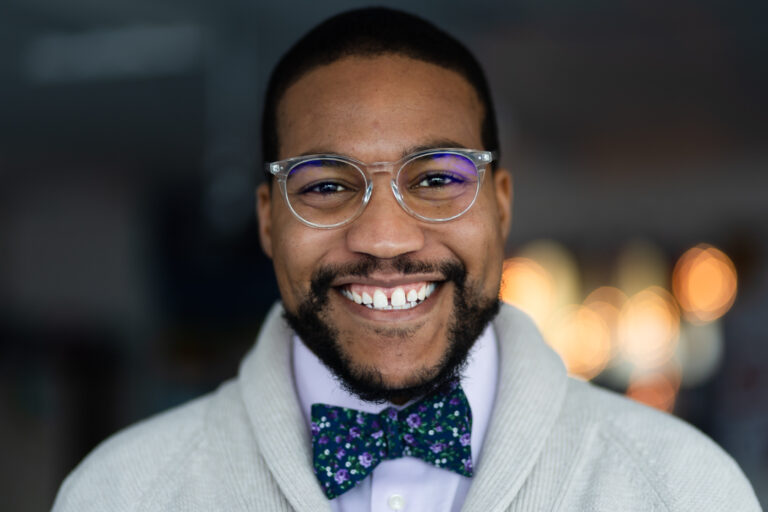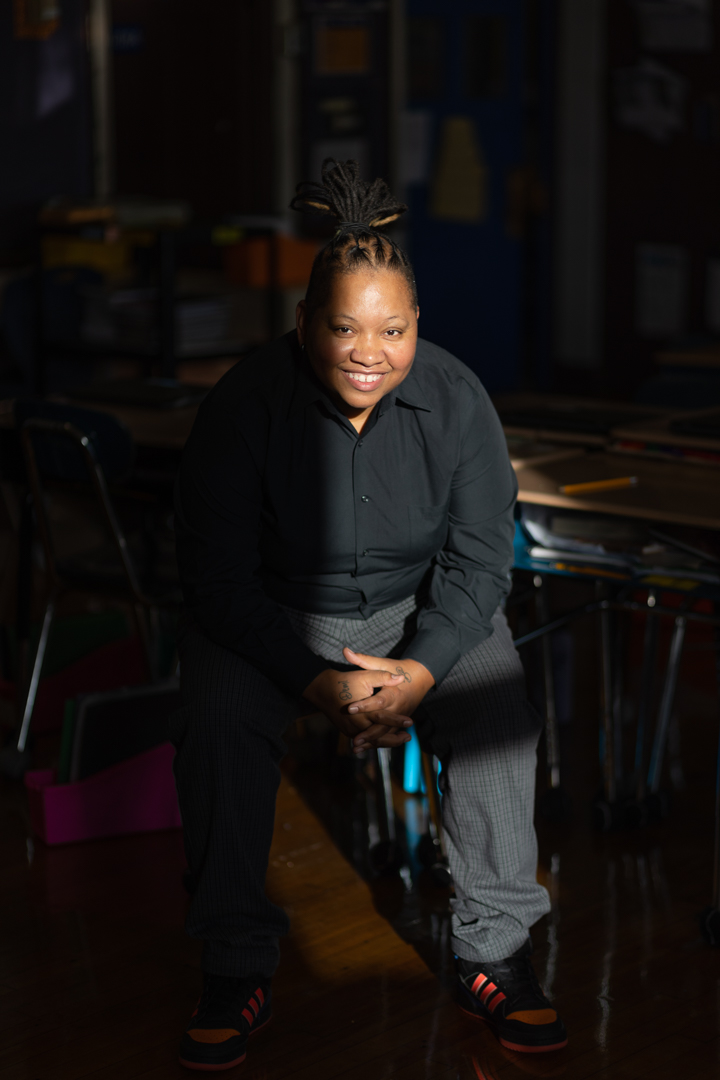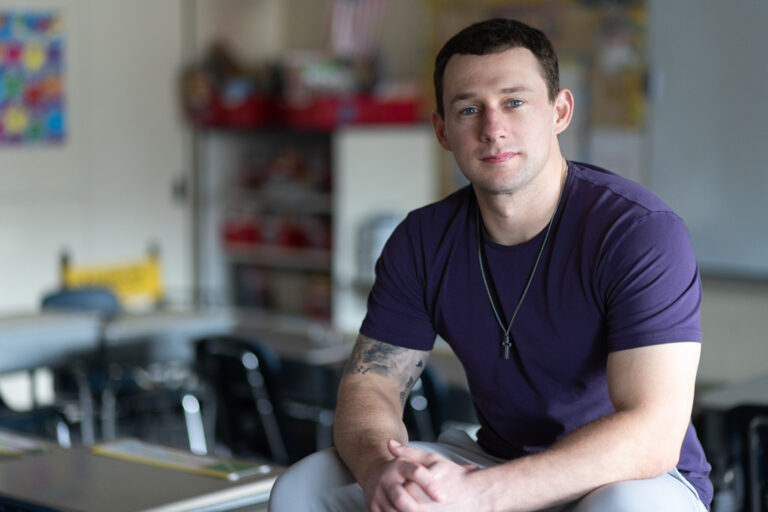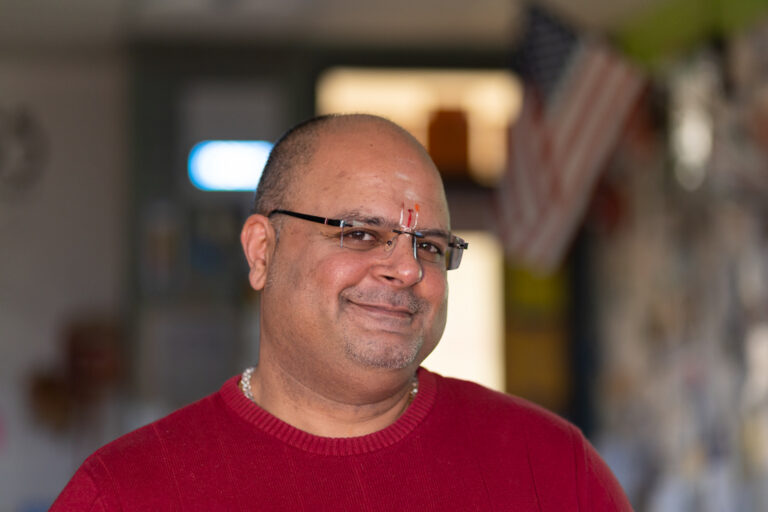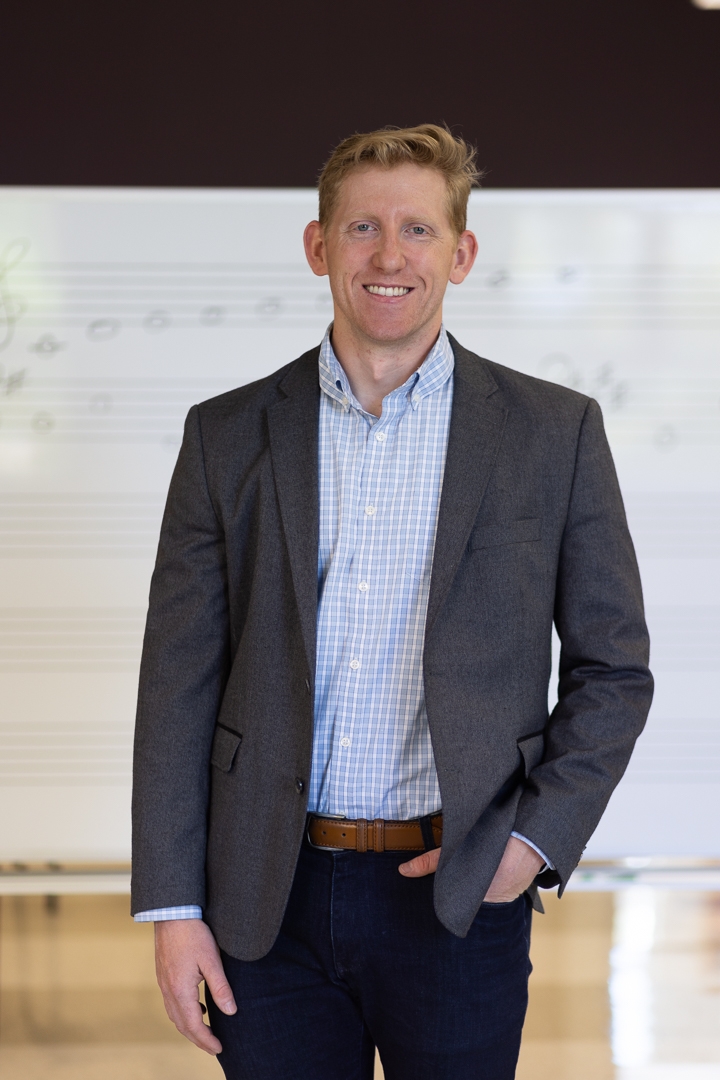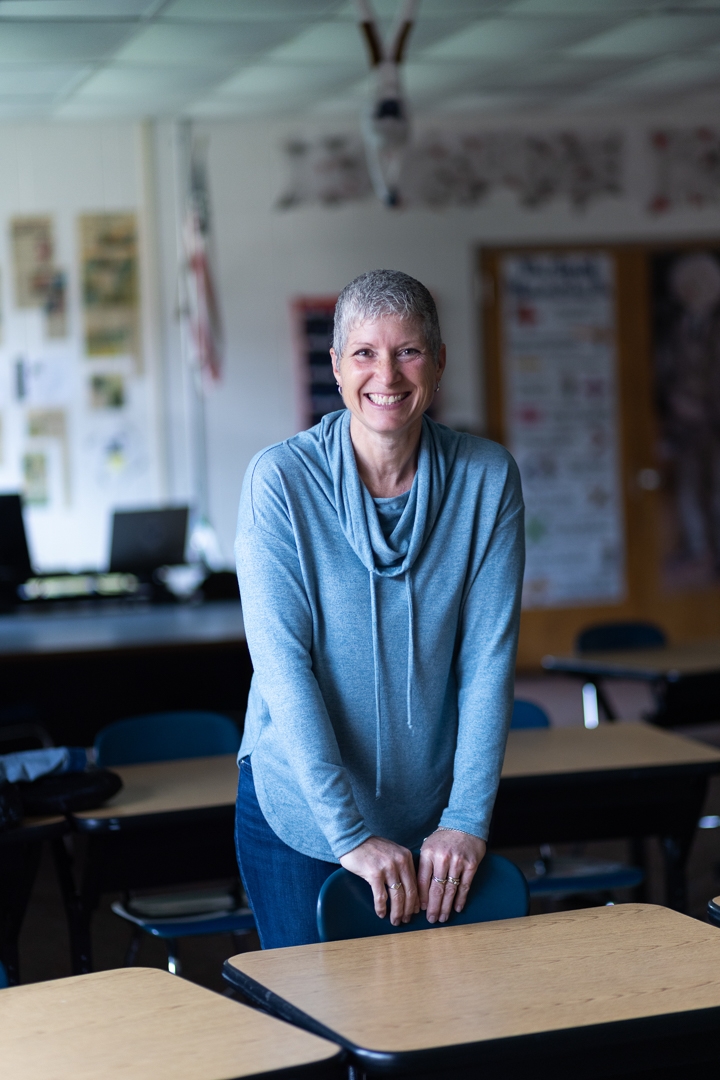Stories, interviews, and videos where teachers discuss what keeps them in teaching.
My connection with a student was able to save her life.
I was her Business teacher. And there was a point where she was always in class, always participating. She was actually one of my best students. But during the course of the first year I had her, she started missing class.
It was about the third classroom I walked into that I saw a distinct pattern. It was in the written instructions that the teacher would leave for me. It's called the sub plans. And at the bottom of all the sub plans was always a list of students' names.
And above that list of names was a title.
And that title said, “Problem students.”
The fear in my mind of saying the wrong thing is a fear I have as a teacher constantly.
And that scares me as an educator who constantly is trying to create positive dialogue that considers all sides of the debate.
I wanted to work at the Boston Federal Reserve and go to the London School of Economics. But I graduated in 2009, and there were no jobs available, due to the housing crisis and Great Recession. So I started working at a local public charter school.
I was working at The Bridge Home at St. Mary's Women and Children's Center. It’s a shelter for infants to 12-year-olds. If the Department of Child and Family Services pulled a kid from their home, we housed and counseled them.
The bulk of my fifth graders are just excited to see me. They want to talk to you in their downtime. They want to sit by you at lunch, and they want you to come to recess with them. That feeling is the driving force that made me become a teacher.
I grew up in Oak Park in the 1980s. People were all about the melting pot. The idea was that everyone is the same and nobody looks different — we're all part of this collective homogenous blob. One of the drawbacks to that was that I was never really seen.
I was the kid who was under the table with a fireman's helmet on, covering his ears because he didn't understand what people were saying. I would get frustrated all the time because I didn't understand multiple syllable words. So in elementary school, I was diagnosed with dyslexia.
I have one student who really sticks out in my mind. I had him in my class when I taught seventh grade, and then he was in my class again when I switched to eighth grade. So I got to have him in my math class two years in a row. And he would do a lot of odd jobs around the room — hanging posters, things like that.
